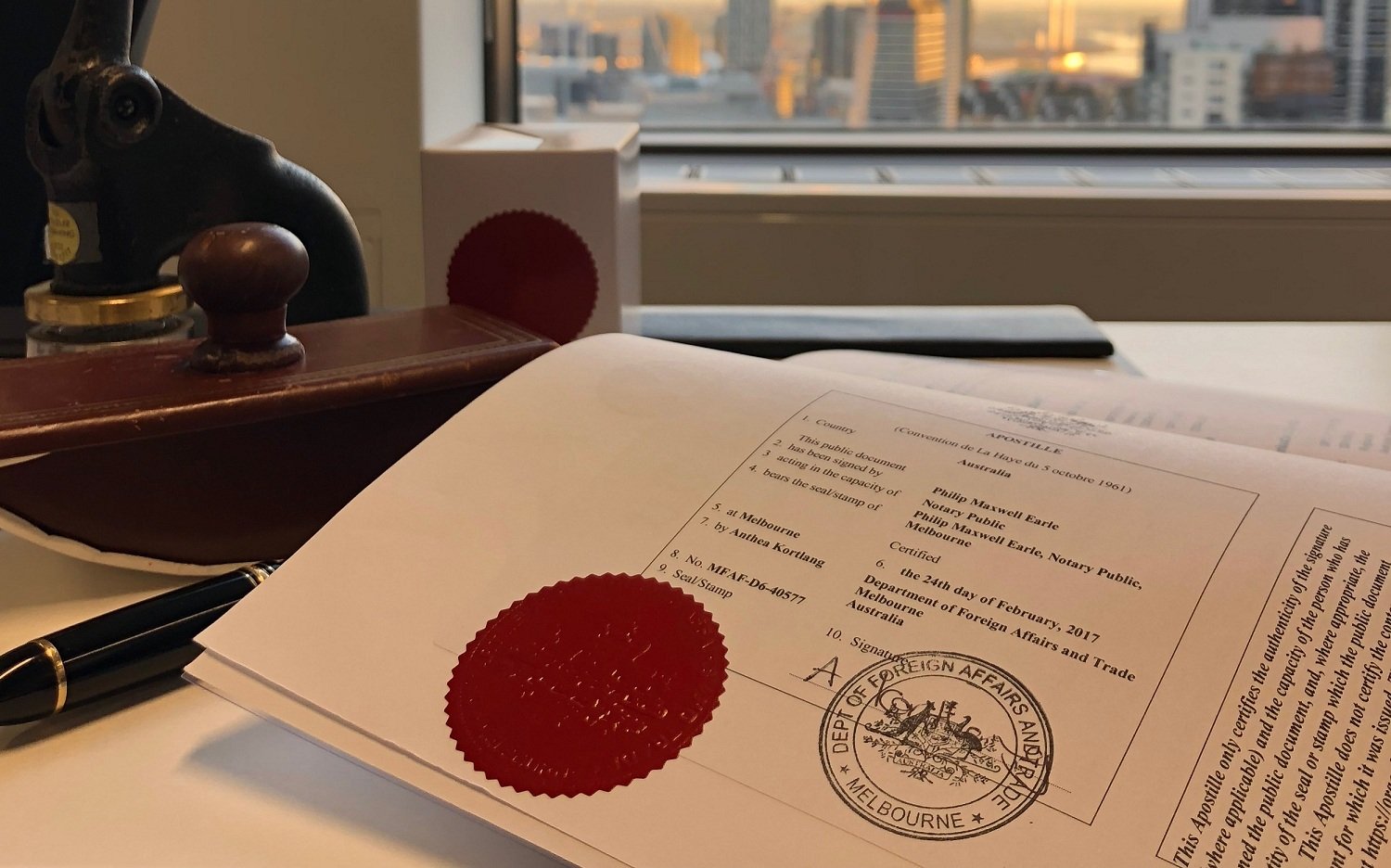Looking Into the Factors Behind the Necessary Demand of Apostille Qualification for Legal Papers
In the realm of lawful paperwork, the necessary requirement of apostille accreditation has ended up being a vital facet that dramatically impacts the validity and acknowledgment of lawful documents on an international scale. Recognizing the rationale behind this need entails delving into the complex internet of legal complexities, historic criteria, and global contracts that underscore the value of apostille accreditation in today's interconnected globe. By checking out the underlying factors behind this widespread requirement, a more clear photo arises of why this apparently bureaucratic process holds such enormous importance for companies, individuals, and governments alike.
Historical Evolution of Apostille Qualification
Exactly how did the idea of apostille qualification advance over time to become an essential component of international paper validation? The need for a streamlined technique of confirming documents for use across borders ended up being apparent as international profession and travel boosted.
Originally embraced by a few European nations, the Apostille Convention slowly got worldwide approval as a result of its efficiency and effectiveness in confirming the legitimacy of official papers. For many years, the convention's reach broadened as even more nations joined, identifying the apostille as a globally approved form of file verification. Today, apostille certification has actually become a conventional need for verifying legal papers in global transactions, making sure smooth communication and lawful proceedings between nations.
Simplifying International Record Legalization
The streamlining of international record legalization procedures has actually significantly enhanced performance in cross-border purchases. Simplifying the process of legislating documents for worldwide usage has become important in assisting in swift and smooth transactions between nations. Among the essential devices that have added to this simplification is the fostering of the Apostille Convention, which offers a standard method for validating the credibility of files across taking part nations.
By adhering to the Apostille demands, nations agree to recognize each other's public files as legitimate without the requirement for more legalization. This gets rid of the lengthy and often difficult process of several verifications by different authorities, saving time and resources for people and services engaged in international tasks.

Making Sure Record Authenticity and Validity
To make sure the authenticity and legitimacy of lawful records in global deals, strict confirmation procedures are crucial. By requiring apostille qualification for lawful documents, authorities intend to authenticate the beginning of documents and verify the trademarks of people included.
In addition, verifying the authenticity of lawful papers via apostille certification improves trust fund and self-confidence among celebrations involving in worldwide purchases. Inevitably, by promoting strict verification requirements, apostille qualification adds to an extra safe and secure and transparent global lawful framework.

Helping With Cross-Border Legal Acknowledgment
In the world of global deals, the apostille accreditation not just guarantees the credibility and legitimacy of legal records yet additionally plays an essential role in facilitating cross-border legal recognition (Houston Apostille). When lawful documents birth an apostille certificate, they are easily accepted by foreign authorities without the need for further confirmation. This structured process accelerates the recognition of files in different nations, promoting effectiveness and lowering governmental hurdles in lawful matters that transcend nationwide boundaries
Helping with cross-border lawful recognition through apostille certification fosters trust and confidence in the credibility of records traded in between nations. This recognition is specifically critical in situations such as worldwide business purchases, adoption procedures, or legal proceedings entailing celebrations from various territories. By sticking to the standards set forth by the Apostille Convention, nations accept honor the apostille seals affixed to papers from various other participant countries, hence streamlining the procedure of legal acknowledgment across boundaries. Ultimately, the apostille certification works as a basic tool in advertising smooth worldwide legal collaboration and making certain the smooth procedure of cross-border deals.
Compliance With International Treaty Specifications
Compliance with worldwide treaty requirements is crucial for ensuring the consistent application of legal laws across participating countries. The Apostille Convention, established in 1961, details the demands for the acceptance of public files among member nations.
The Apostille qualification, as mandated by the treaty, serves as a warranty of credibility for records such as birth certifications, marital relationship licenses, court these details judgments, and notarized deeds. This standard technique assists avoid fraud and makes sure that legal papers stemming from one member country are easily accepted in an additional. Furthermore, by conforming with international treaty criteria, nations demonstrate their dedication to upholding the concepts of openness, trust fund, and collaboration in lawful matters on a worldwide range.
Conclusion

In the realm of lawful documents, the necessary need of apostille certification has actually come to be a crucial aspect that substantially impacts the validity and acknowledgment of legal papers on an international scale. Today, apostille certification has ended up being a common requirement for verifying lawful documents in global purchases, making sure smooth communication and lawful procedures between nations.
In addition, confirming the authenticity of lawful files with apostille certification improves count on and self-confidence amongst celebrations engaging in international transactions.In the realm of international purchases, the apostille certification not just makes certain the credibility and validity of legal documents however likewise plays a crucial role in promoting cross-border lawful recognition. By sticking to the criteria set forth by the Apostille Convention, nations concur to recognize the apostille seals affixed to records from various other participant nations, thus simplifying the process of lawful acknowledgment throughout boundaries.